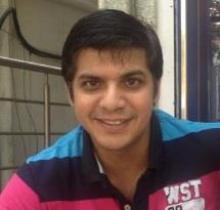What the Olympics Can Teach Us about Managing Software Projects

Observers at the winter Olympics in Sochi say that for the most part the opening ceremony was glorious—except for one glitch that left the organizers embarrassed. As Fox News reported, instead of five Olympic rings, only four appeared during the display.
This incident gives us an opportunity to learn a couple of lessons about managing software projects.
Lesson #1: Drive pilot tests as meticulously as the actual run.
A pilot test is running an entire project as it would be demonstrated to the users. Of course the organizers at the Sochi Olympics would have run pilot tests of the opening ceremony, but looking at the end result, it is obvious that some details missed being simulated. When the stakes are high, as in the case of the Olympic opening ceremony, it is in the best interest to simulate the entire sequence of events while varying the various environmental factors.
Steve Jobs was well known for his outstanding demos. What is not so widely known is the extent of his preparation to ensure a flawless delivery. In his book, Dogfight: How Apple and Google Went to War and Started a Revolution, Fred Vogelstein narrates a story that highlights Jobs' penchant for perfection before unveiling the iPhone for the first time.
The software in the iPhone's Wi-fi radio was so unstable that Grignon and his team ultimately soldered antenna wires to the demo phones and ran them offstage along the wires to the projection setup. The iPhone would still connect wirelessly to the network, but the signal wouldn't have to travel so far.
The iPhone wasn’t in the most stable condition before the demo day, but Jobs saw the demo as his sole opportunity to capture the imagination of the world. The only way that he could manage the same was to run pilot tests simulating the response to even the remotest possibility of failing.
Lesson #2: If failing is the only option left, then choose to fail faster.
One of the things that Konstantin Ernst, the creative director behind the Sochi Olympics opening ceremony, said upon the media scrutiny after the glitch was, "This is certainly bad, but it does not humiliate us."
Some sections of the media labeled the ceremony as a failure due because of the few technical glitches. As a response to it, Konstantin was probably looking to move on and fail faster. As Pixar's story suggests, by giving themselves permission to fail again and again, animators weed out the bad ideas as quickly as possible and get to the place where real work can occur.
Don Shula, one of the most successful football coaches, wrote in the book The Little Book of Coaching: Motivating People to Be Winners, "I had a twenty-four hour rule. I allowed myself, my coaches, and our players a maximum of twenty four hours after a football game to celebrate victory or bemoan a defeat."
Do you believe in the twenty-four hour rule to fail faster?

